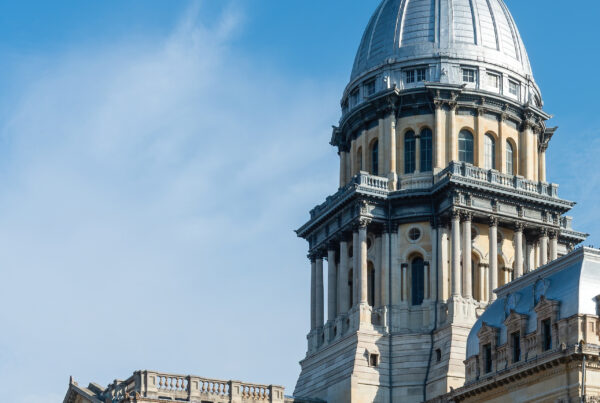
Budget director Mick Mulvaney says administration officials should not provide any further details about the budget plan beyond what was in the 53-page document. | Getty Images
By Mark Brown, columnist
The problems that President Donald Trump’s proposed federal budget would cause for Chicago extend far beyond the Meals on Wheels program that so far has received most of the attention.
As I explained in Sunday’s column, the $3 billion Community Development Block Grant program that Trump would eliminate provides $1.8 million — or 20 percent — of the $8.6 million the city spends on its version of Meals on Wheels.
That’s not fake news. That’s a real cut that could severely impact a vital service that brings nutritious meals to 8,000 needy seniors a year.
But it’s also just a fraction of the city’s total expected $81 million CDBG allotment for 2017. Take away that money entirely, as Trump proposes, and you poke a painful hole in numerous other city social service efforts.
In addition to home-delivered meals to seniors, Chicago plans to use this year’s $72 million CDBG allotment to pay for additional services for the elderly, as well as for individuals who are homeless, disabled or diagnosed with HIV/AIDS.
CDBG money is an important funding source for mental health, crisis intervention and domestic violence services in Chicago.
Another portion of the money is used toward the city’s various efforts to create and preserve affordable housing, as well as screening for lead poisoning and demolition of vacant buildings.
On top of zeroing out the CDBG program, Trump would also eliminate the Community Services Block Grant, from which the city receives another $13 million to use in similar ways.
The city has yet to tally up the total impact of the Trump budget cuts, and it’s certainly possible they will never need to do so, given that many believe Congress will mostly ignore the president’s spending plan.
But it’s not too early to begin disabusing those who choose to believe there is no consequence to stripping away these funding sources.
Homeless programs alone receive nearly $9 million a year from the city through the CDBG program, said Julie Dworkin, policy director at Chicago Coalition for the Homeless.
Although that’s only a portion of total city spending on homeless programs, eliminating CDBG funds would likely cause additional distress for emergency shelters already hurting from the state’s budget woes while also undercutting the city’s efforts to prevent homelessness.
“We’re definitely very concerned about it,” Dworkin said, noting that there is no other source to replace the funding that would be lost.
“This would just be gone. They would have to cut it,” she said.
Heather O’Donnell, vice president of public policy for Thresholds, one of Chicago’s key mental health service providers, said her agency receives several hundred thousand dollars in CDBG monies to provide supportive housing to people with severe mental illness.
“The cuts at every level just exacerbate the problems we already have,” O’Donnell said.
The idea behind federal block grants is to send money to states and local governments in a lump sum that they can spend as they choose within certain parameters.
CDBG money is distributed according to a formula based on population and other measures of need. Funds are supposed to be used mainly for the benefit of persons with and low and moderate incomes.
We could probably argue over whether certain expenditures are the best use of federal money, and some of the other services probably wouldn’t be as popular with the public as Meals on Wheels.
But I’ve always thought it made sense to let local governments decide their own priorities on how to spend federal money.
The Trump administration argues the CDBG program “is not well-targeted to the poorest populations and has not demonstrated results.”
Trump wants to use the money he would save from these programs for a military buildup.
To borrow a phrase from Trump budget director Mick Mulvaney, military buildups “sound great” — if you’re a defense contractor.





